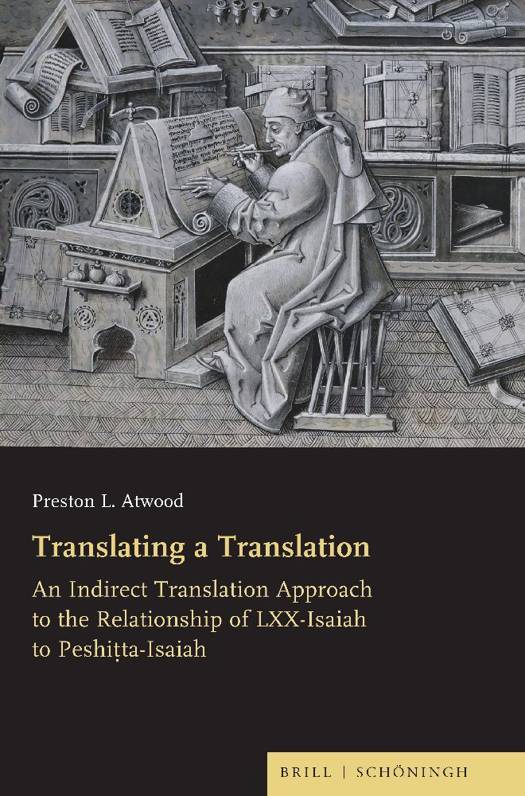
Bedankt voor het vertrouwen het afgelopen jaar! Om jou te bedanken bieden we GRATIS verzending (in België) aan op alles gedurende de hele maand januari.
- Afhalen na 1 uur in een winkel met voorraad
- In januari gratis thuislevering in België
- Ruim aanbod met 7 miljoen producten
Bedankt voor het vertrouwen het afgelopen jaar! Om jou te bedanken bieden we GRATIS verzending (in België) aan op alles gedurende de hele maand januari.
- Afhalen na 1 uur in een winkel met voorraad
- In januari gratis thuislevering in België
- Ruim aanbod met 7 miljoen producten
Zoeken
Translating a Translation
An Indirect Translation Approach to the Relationship of LXX-Isaiah to Peshitta-Isaiah
Preston Atwood
€ 244,45
+ 488 punten
Omschrijving
Using the model of indirect translation from modern translation studies, this monograph argues that the Septuagint translation of Isaiah played little to no role in the translation of the Peshitta of Isaiah. Since the mid-to-late nineteenth century, many scholars have argued that the translator of the Syriac Peshitta of Isaiah (200 CE) frequently consulted and/or translated the Greek Septuagint (140 BCE) at certain points during the process of translation (e.g., when encountering difficult lexis in their Hebrew source text). However, the study of this translational phenomenon has lacked methodological control. Applying indirect translation theory and methodology from modern translation studies to the Peshitta of Isaiah, this book argues that where the Peshitta of Isaiah and Septuagint of Isaiah agree (against their common Hebrew source in chapters 1-39), the "agreement" is almost always due to common translation technique, rather than direct influence from the older Greek text.
Specificaties
Betrokkenen
- Auteur(s):
- Uitgeverij:
Inhoud
- Aantal bladzijden:
- 430
- Taal:
- Engels
- Reeks:
- Reeksnummer:
- nr. 13
Eigenschappen
- Productcode (EAN):
- 9783506791375
- Verschijningsdatum:
- 1/12/2023
- Uitvoering:
- Hardcover
- Formaat:
- Genaaid
- Afmetingen:
- 215 mm x 33 mm
- Gewicht:
- 993 g

Alleen bij Standaard Boekhandel
+ 488 punten op je klantenkaart van Standaard Boekhandel
Beoordelingen
We publiceren alleen reviews die voldoen aan de voorwaarden voor reviews. Bekijk onze voorwaarden voor reviews.









